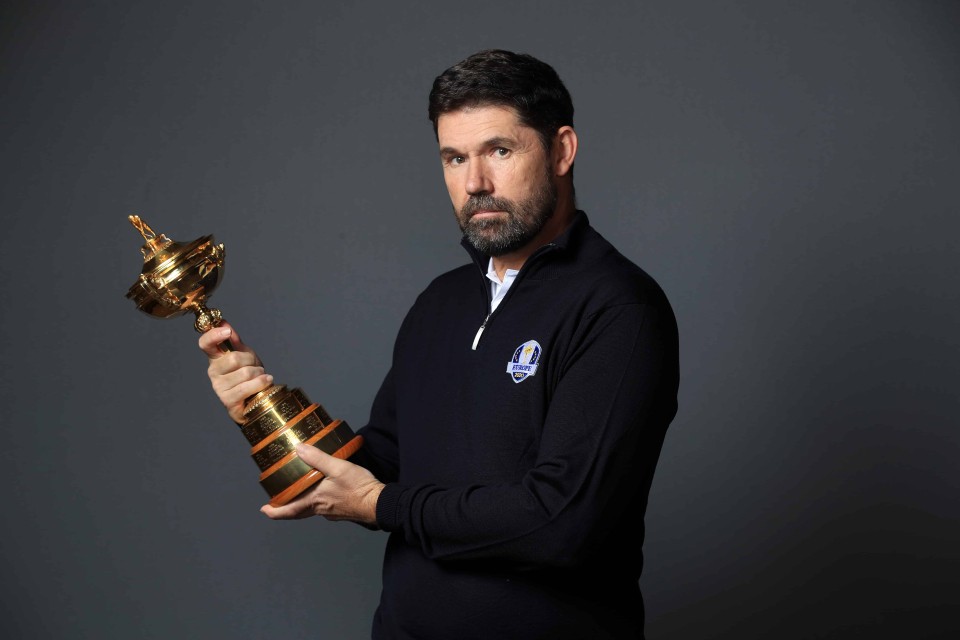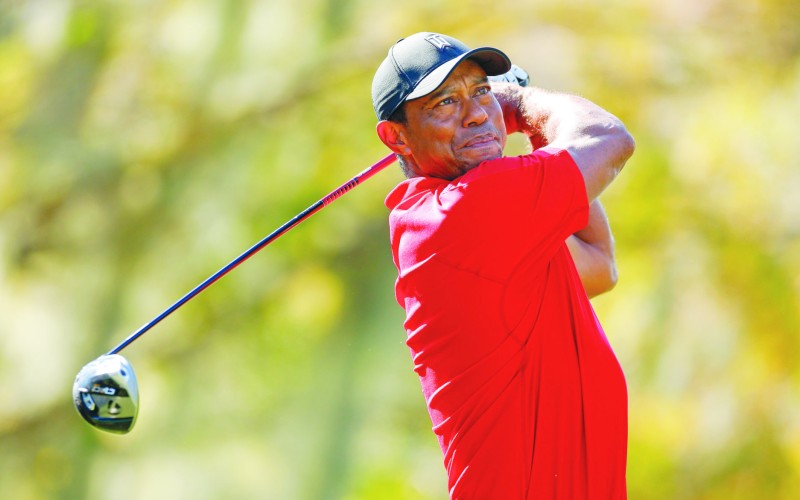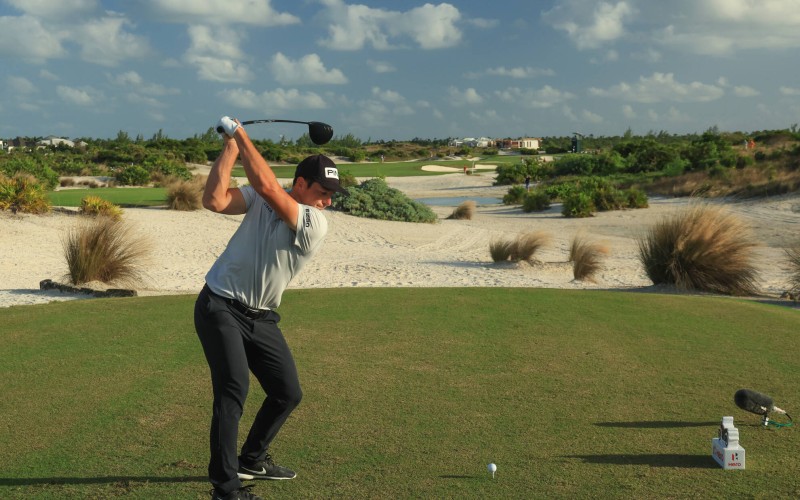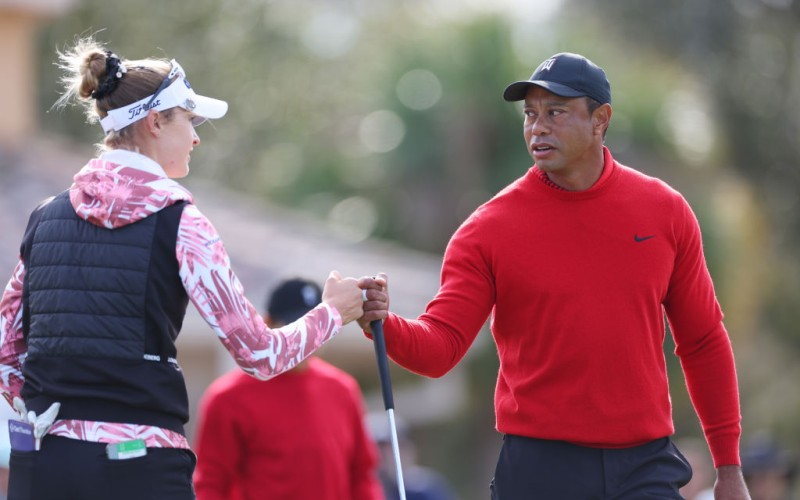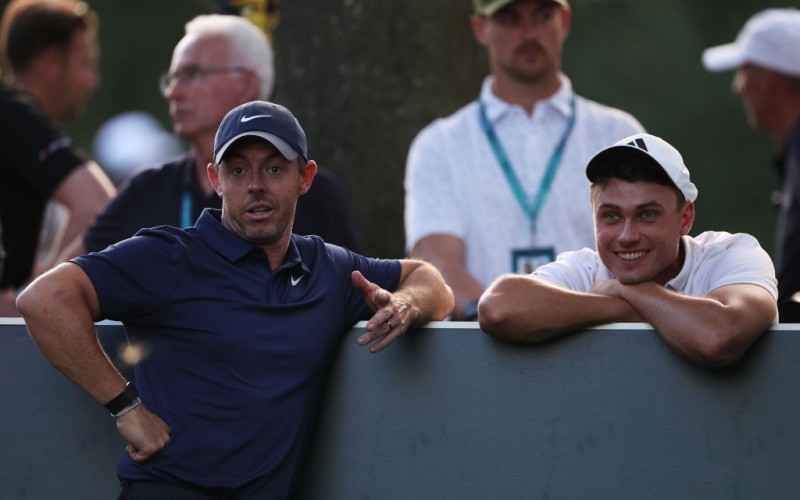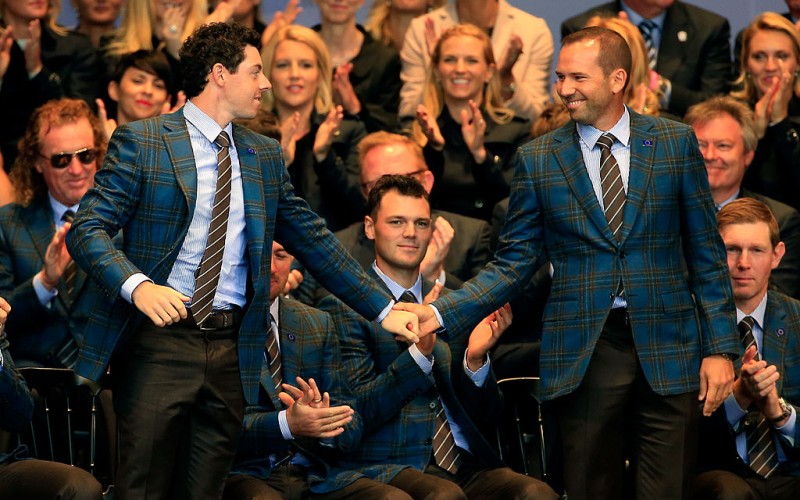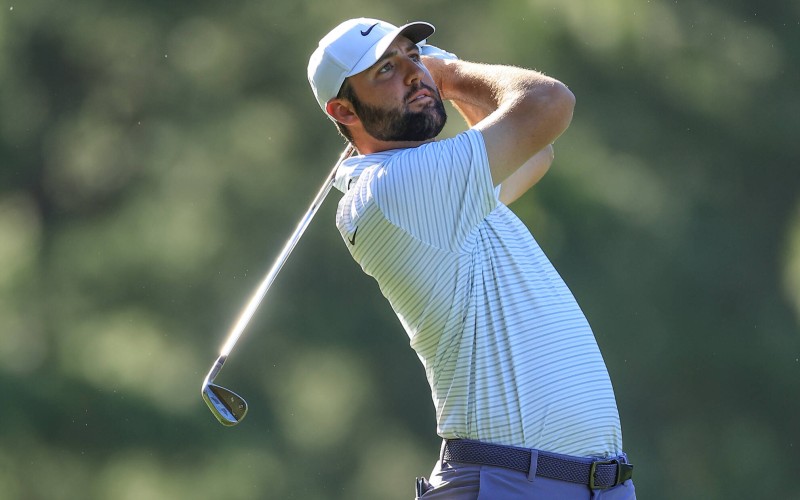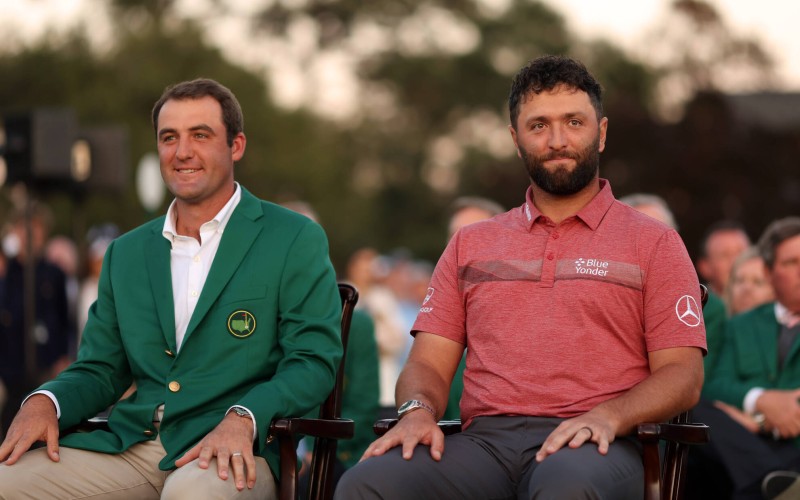Padraig Harrington is one of the most decorated European golfers in history with three Major titles and four Ryder Cup wins to his name, yet the biggest challenge of his career awaits at Whistling Straits. The Irishman will lead out the European Team for The 43rd Ryder Cup in Wisconsin with the sole aim of continuing their recent dominance in the biennial showpiece.
The task will not be an easy one with the Americans appearing to be the stronger team of the two with eight of their players currently occupying the top 10 in the Official World Golf Ranking, but you’d be a fool to think that plays on Harrington’s mind. The 49-year-old, who is renowned for his vast knowledge of the game and meticulous planning, has left no stone unturned in preparing for the titanic battle as he looks to follow in the footsteps of European greats, including José María Olazábal and Bernhard Langer, in captaining the team to victory on American soil.
Worldwide Golf’s Thomas Wragg caught up with Harrington ahead of golf’s greatest contest to get his thoughts on Captain’s Picks, course set-up and his greatest Ryder Cup memories.
Worldwide Golf: How proud are you to be leading out the European team at Whistling Straits?
Padraig Harrington: To be selected by your peers to take on this role is humbling and it will be one of my proudest moments in over 25 years as a professional golfer to lead the European Team in Wisconsin, not just because of the incredible players who will be on that team, but also knowing I will have joined an historic group of only 26 other people who have held the honour of being European / GB&I Captain since the contest began in 1927. I’m fortunate to have achieved a lot in the game personally, including having won three Major Championships, some 30 professional tournaments around the world and a few team events, including the World Cup of Golf for Ireland alongside Paul McGinley in 1997 and, of course, the Ryder Cup four times as a player. I’m incredibly proud of all those achievements, but being Ryder Cup Captain is right up there with all of them.
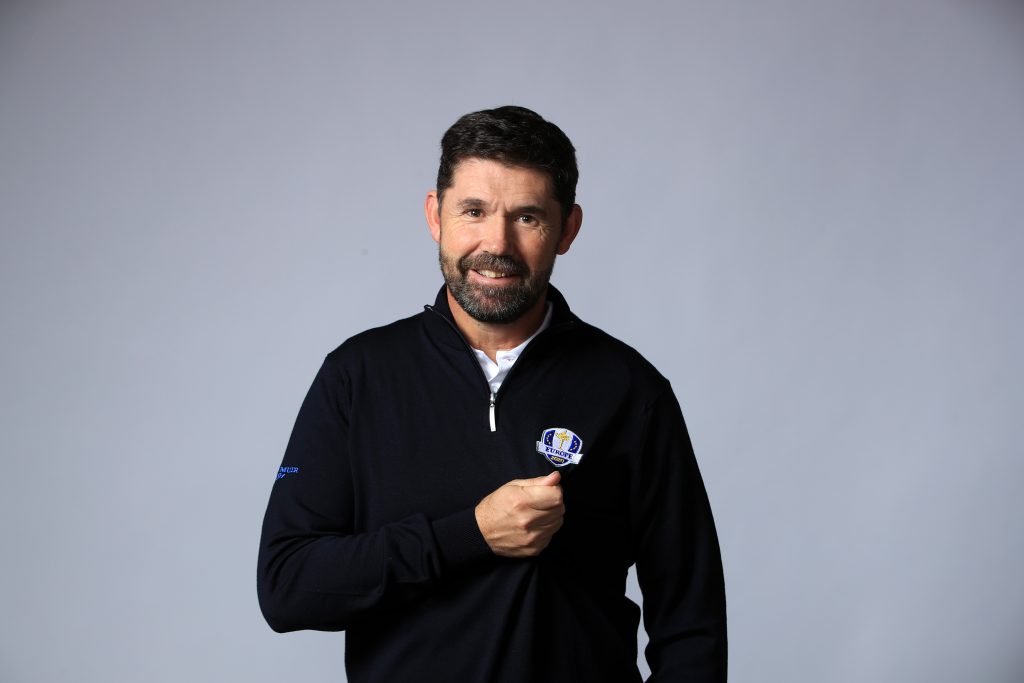
WWG: Has having an extra year helped in your preparations or made it more difficult with different players playing their way into contention?
PH: It has certainly been an interesting journey and obviously a longer one than all of us expected or indeed wanted. However, from when we restarted our qualification process in January, the last eight months have been positive. Everybody has been able to play and we have a good system in place that has allowed us to look at everyone and see how they’re playing. I don’t think there is any point in looking backwards at players that might have been in contention previously and maybe they’re not now. There’s nothing you can do about that so all we’re focused on is the players in contention for places in the team right now. That’s all that matters.
WWG: Looking back on your Ryder Cup career as a player – what is your favourite moment and who do you consider was your fiercest opponent and why?
PH: It’s difficult to pick out a favourite moment because I have been fortunate to have had so many in this great contest. Therefore, if you will indulge me, I will mention a few. The first one is an odd one because it was a moment that was such a high only to be followed by such a low only minutes later. On my debut at Brookline in 1999, I genuinely thought I had helped at least retain the Ryder Cup for Europe when I beat Mark O’Meara on the last green in my singles match. I had looked at the scoreboard a few holes earlier and saw that José María Olazábal was four up with seven to play on Justin Leonard so I assumed that point was in the bag and therefore when I won my match, I was absolutely on cloud nine. I did the TV interview at the back of the 18th green and I then felt like I was floating back down the fairway on my way to the 17th green. Unfortunately, I arrived at just the time that Leonard holed that monster putt to help guarantee the US a half point that helped them get to 14 ½ points to win the trophy back. It was a crazy half hour but a memorable one nonetheless.
Other great memories come from Europe’s resounding victory at Oakland Hills in 2004 where, in the very first fourball match on Friday morning, I partnered Colin Montgomerie to a 2&1 victory over Phil Mickelson and Tiger Woods. That gave the whole team a lift and we never really looked back from there. I also ended the team component of that match with a comprehensive 4&3 victory alongside Paul McGinley over Tiger and Davis Love III in the final Saturday afternoon foursomes, before beating Jay Haas 1 up in the singles on the Sunday. That really was a great week as Europe won by nine points. As far as toughest opponents go, it might surprise a few people but my answer to that is Scott Verplank. I played Scott in the singles at The K Club in 2006 and, with the Irish crowds behind me, I really was hoping to win that match but I couldn’t have been more wrong. Scott was terrific that day, never gave me the slightest opportunity to get into the match, and ran out a deserving 4&3 winner.
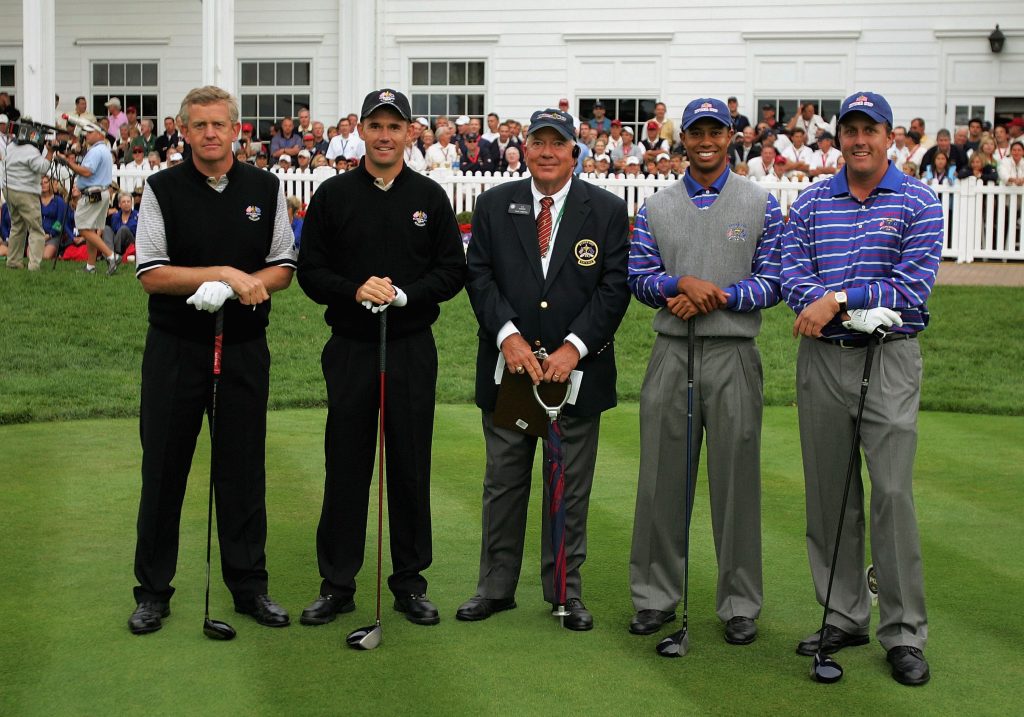
WWG: Paul McGinley and Thomas Bjorn have really laid down the foundations of what it takes to be a modern-day Ryder Cup Captain with their high levels of attention to detail, and you were a Vice Captain under both of them – how much influence have they had on your reign as Captain so far?
PH: I’ve been fortunate to play in six Ryder Cups in total and have been Vice Captain on another three occasions so I’ve picked up bits and pieces from all nine Captains I worked under that I will be utilising at Whistling Straits alongside my own thoughts and ideas. I enjoyed being Vice Captain for Thomas and Paul and also for Darren Clarke in 2016 because sometimes you learn just as much when things aren’t perhaps going according to plan as you do when everything is working. One thing is for certain, you definitely learn more about everything that goes with the Ryder Cup when you’re a Vice Captain than when you’re a player. When you’re a player, all you are really concentrating on is your own game and your own form, but when you’re a Vice Captain you have a bit of time to look around and take everything in, because not only are you not playing, you also don’t have the ultimate focus on you as Captain either.
WWG: With Lee Westwood playing well this year and likely (at this point) to qualify for the team – is having a player of his Ryder Cup stature in the side almost as good as having an extra Vice Captain?
PH: Earlier this year, Lee was presented with the Seve Ballesteros Award for Players’ Player of the Year for 2020 which was truly deserved. He was the runaway winner of the players’ vote and little wonder given the phenomenal season he had last year which culminated in him winning the Race to Dubai, some 20 years after he was crowned European Number One for the first time in 2000. Lee is the only active player to have won in four decades (1990s, 2000s, 2010s and 2020s) and the good news for me and the European Ryder Cup team is that, like a fine wine, he seems to be getting better with age. He is comfortably in the team and that is important for me because you need leaders and Lee is certainly that. What he says in the locker room will command respect.
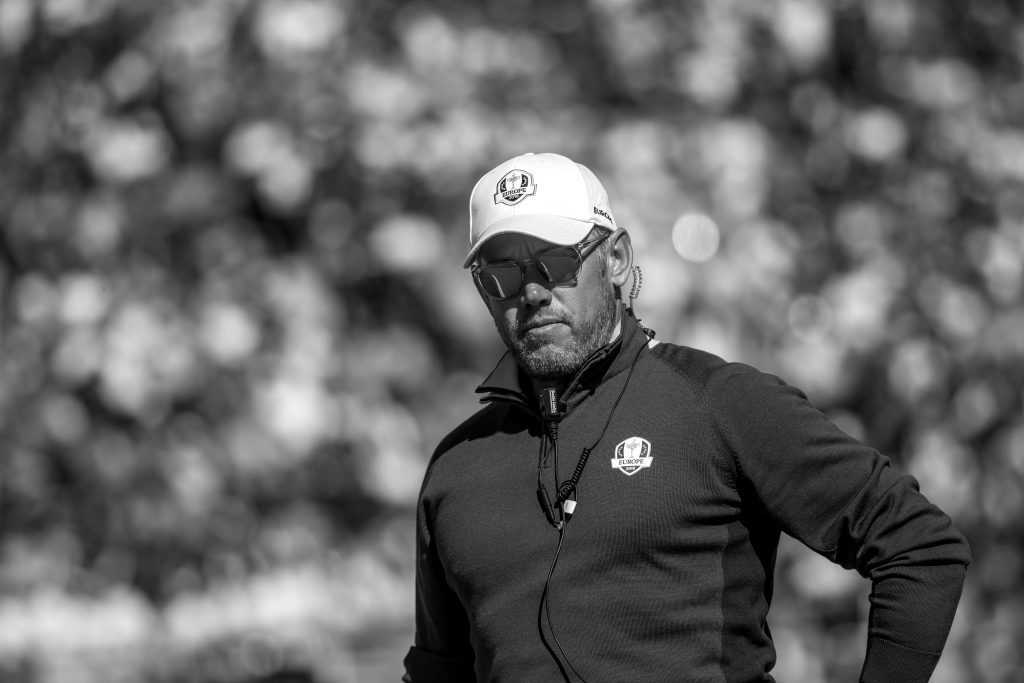
WWG: Prior to making the picks, will you seek input from players already in the team as well as the Vice Captains?
PH: We’re already doing that. The Vice Captains and I have been in constant communication about all aspects of the team for some time; looking at the players who have automatically qualified, looking at my potential Captain’s Picks, and also looking at potential pairings for both the foursomes and the fourball sessions. We have a fair bit of experience of the Ryder Cup between us so we’re utilising all of that in our discussions. I also have regular dialogue with all the players involved, so they know exactly what the picture is and what we are looking to achieve as a team.
WWG: How much will the course set up – done by Steve Stricker and his PGA aids – potentially affect your pairings or game plan?
PH: It’s a fact in the Ryder Cup that home advantage does have a significance and one area where that is the case is terms of the course set-up. If we had to go and play the U.S. on a stereotypical American golf course such as Valhalla, Hazeltine or Medinah it would be challenging. It’s very difficult to beat the US on that style of golf course and that’s why what happened at Medinah in 2012 is rightly described as a miracle. Thankfully, however, this time round at Whistling Straits, it’s a less typical American golf course, although I expect it to be set up in traditional U.S. style as much as possible. I was there a few weeks ago and it was pretty green, they are not letting it get firm and fast, it has wide open fairways and there is not a lot of rough. I’m sure the greens will be fast and the course in general will be set up for a lot of birdies, but I don’t see that affecting the way our pairings are decided. We will go with what our research and knowledge of the players has told us and remember, these are some of the best players in the world, so they will be able to cope with any layout in front of them.


